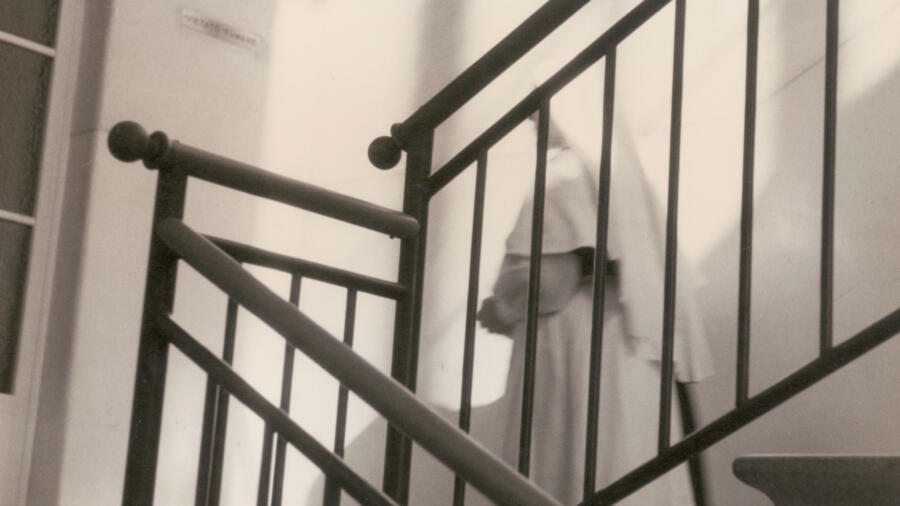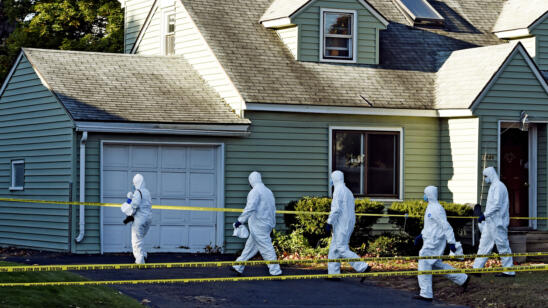The network behind the 2015 hit Making of a Murderer has just released The Keepers, a new docuseries on Netflix. It explores the killing of a Catholic nun and efforts to expose alleged sexual abuse by, among others, priests in the Catholic Church. This long-unsolved murder (one of 250 in Baltimore County, Maryland) is once again in the spotlight. Here’s a run-down of the case so far.
The Victim
Catherine Ann Cesnik was on sabbatical from teaching drama and English at Baltimore’s Archbishop Keough High School in 1969. She had reportedly been granted a period of exclaustration, which meant that she’d live outside the convent and wear civilian dress. The 26-year-old was working at a Baltimore City public high school and sharing an apartment with another nun.
The Crime
On the night of November 7, 1969, Cesnik was last seen at her apartment in Baltimore City. She was headed to run errands at a nearby shopping center. Her roommate never saw her alive again. Detectives believe that someone accosted the nun in front of her home as she returned from the store, forcing her back into her car. She was driven to Monumental Avenue where she was assaulted and murdered. The next day (November 8), the roommate reported Cesnik missing to Baltimore City Police [NOTE: Baltimore the city is within Baltimore County]. On January 3, the nun’s body — ravaged by the elements and animals — is found by hunters, a father and son, at a dump in Lansdowne, Baltimore County.
The Evidence
Because of the condition of Cesnik’s corpse, police were unable to tell if she had been sexually assaulted. The autopsy reportedly found that the cause of death was blunt force trauma to the head. What little physical evidence found at the scene was collected. The victim’s car had been found on November 8, parked within walking distance of her home.
The Investigation
For the next seven years, the case was, according to the Baltimore County Police (BCoPD), “extremely active.” After 1977, the case became “dormant” with “all leads exhausted.” [as per a BCoPD release] In 1992, the first allegations of sexual abuse were made against Father Joseph A. Maskell by two (female) former students at Archbishop Keough HS. This fell under the jurisdiction of the Baltimore City Police. In 1994, the two students were listed as plaintiffs in a $40 million suit alleging sexual abuse at the school by Maskell; one of them claimed that Maskell showed her Cesnik’s body and threatened her. According to detectives, there were inconsistencies in her account. Maskell, not considered a prime suspect at the time, died in 2001.
In 1994, police reconsidered the Cesnik case, given new advances in forensic testing. A DNA profile was created from crime scene evidence. For the next fifteen years or so, DNA profiles of some six suspects were created and compared — none of them matched. In 1996, the Maryland Court of Appeals decided (in Jane Doe, et al., v. Joseph Maskell, et al.) that the statute of limitations would not be lifted in the case of repressed or recovered memories of, in this case, alleged horrific sexual abuse. In 2016, the Archdiocese of Baltimore admitted to paying settlements (since 2011) to people who accused Maskell of abuse. Also in 2016, detectives on the Cesnik case retired and it was re-assigned. Activity on the case heated up as victims of sex abuse turned to social media to discuss Sister Cathy and Maskell. “Numerous interviews [were] conducted,” according to the BCoPD, and “one living suspect [was] re-interviewed.”
In January 2017, detectives looked at three similar unsolved murders for possible connections to Sister Cathy. Joyce Helen Malecki, 20, disappeared from Harundale Mall a few days after Cesnik; her strangled and stabbed body was found on federal property and was investigated by the Baltimore office of the FBI. Two 16-year-olds, Pamela Lynn Conyers and Grace Elizabeth Montayne, were found dead in 1970 and 1971, respectively. In February, detectives got approval to exhume Maskell’s body from a local cemetery, to obtain a DNA sample. (By spring they got the results — it was not a match.) In May 2017, a woman came forward claiming to have been sexually abused by a deceased BCoPD officer who was linked to Cesnik and Maskell. According to BCoPD, the woman declined to be interviewed.
Where it Stands Now
The theory that Cesnik had become aware of the sexual abuse and was going to expose it — the reason for her murder — has never been proven. “The Baltimore County Police Department’s Cold Case detectives continue to work tirelessly on the Sister Catherine Cesnik case, one of our most active cold cases,” Elise Armacost, a spokesperson for the BCoPD wrote in an email to A&E. “We feel cautiously optimistic that we can solve it, though the older a case gets the more difficult it is to clear. Detectives continue to explore several theories regarding her murder.”
The Archdiocese of Baltimore asserts that it “fully cooperated” and “did not attempt to interfere” in the investigation of Cesnik’s death, according to a May 16, 2017, article in Catholic Review [the newspaper of record for the Archdiocese of Baltimore].
Former students, relatives, journalists, public officials, and the public continue to express interest in the case on the Facebook group Justice for Catherine Cesnik and Joyce Malecki and other forums. You can read more about the case at the Baltimore County website.
Volunteer organization Metro Crime Stoppers had offered a reward for information connected to unsolved felony crimes. Tips can be anonymous.
A&E’s True Crime gets closer to the people and the stories behind the crime headlines.
(Image: Credit: Fratelli Alinari IDEA S.p.A.?Contributor/Getty Images)
Check Out Cold Case Files: The Podcast


